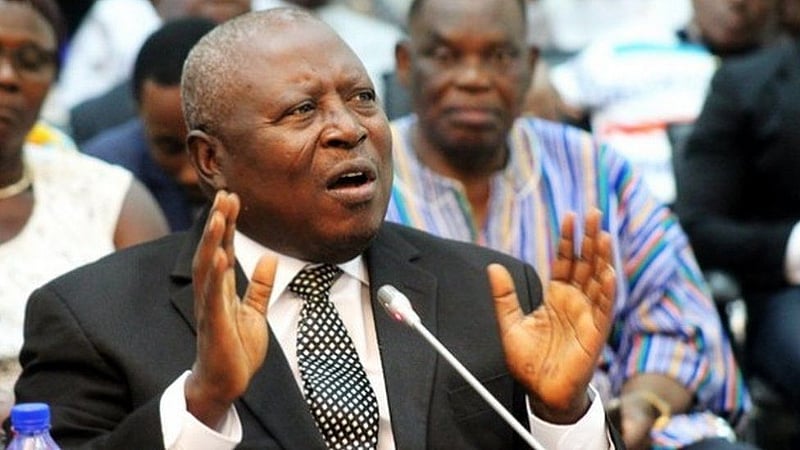Martin A.B.K. Amidu, the former Special Prosecutor of Ghana, has vehemently asserted that Chief Justice Gertrude Esaaba Torkonoo cannot and should not resign in the face of the ongoing inquiry into petitions seeking her removal from office. Amidu contends that resigning at this juncture, after a prima facie case has been established, would be a blatant disregard for the legal process and a subversion of accountability. He emphasizes that the established process, which currently rests with a committee of inquiry, must be allowed to proceed to its logical conclusion, enabling a thorough investigation and determination of the allegations of misbehavior and incompetence leveled against the Chief Justice. Allowing resignation mid-process, Amidu argues, would be tantamount to shielding the Chief Justice from public scrutiny and undermining the integrity of the judicial system.
Amidu’s core argument centers on the principle of accountability and the public’s right to a transparent and complete investigation into the allegations against the Chief Justice. He argues that accepting a resignation would not only prevent the truth from being fully unveiled but also potentially shield the Chief Justice from any further legal repercussions if found guilty. He views the suggestion of resignation as an attempt to circumvent the constitutional process and deny the petitioners, who are exercising their constitutional right, a just and complete hearing of their grievances. He sees this as a dangerous precedent that could erode public trust in the judiciary and create a culture of impunity within the highest echelons of the legal system.
Furthermore, Amidu dismisses arguments suggesting that the Chief Justice should resign to avoid further embarrassment as “despotic and undemocratic.” He frames such arguments as attempts to promote “judicial exceptionalism,” shielding judges from the same level of scrutiny and accountability expected of other public officials. He criticizes the notion that preserving the reputation or image of the judiciary should supersede the pursuit of truth and justice. He posits that allowing a resignation in this situation would send a damaging message: that those in high judicial office are above the law and can avoid accountability by simply stepping down.
The former Special Prosecutor also champions the rights of the petitioners, emphasizing their constitutional prerogative to seek the removal of a superior court justice. He argues that accepting the Chief Justice’s resignation would effectively nullify their efforts and discourage future petitions, thus weakening a crucial mechanism for ensuring judicial accountability. He interprets the calls for resignation as thinly veiled attempts to silence the petitioners and protect the Chief Justice from the consequences of her alleged actions. He underlines the importance of safeguarding the rights of citizens to challenge the conduct of judges and ensure that those holding such powerful positions are held to the highest ethical and professional standards.
Amidu’s pronouncements come in response to suggestions from various quarters advocating for the Chief Justice’s resignation. Among those advocating for resignation is Dr. Nyaho Nyaho-Tamakloe, a veteran politician and football administrator, who argued that stepping down would prevent further public embarrassment for the Chief Justice and the judiciary. These calls for resignation have ignited a debate about the proper course of action in such circumstances, pitting concerns about reputational damage against the imperative for transparency and accountability.
The backdrop for this controversy is the suspension of Chief Justice Torkonoo by President Mahama on April 22nd. The suspension followed the establishment of a prima facie case in three separate petitions alleging misbehavior and incompetence. Acting on advice from the Council of State and in accordance with Article 146 of the 1992 Constitution, a five-member committee of inquiry was subsequently established to investigate these allegations. The committee’s findings will determine the Chief Justice’s ultimate fate, with the possibility of removal from office if the allegations are substantiated. The current debate underscores the complexities and tensions inherent in balancing the need to protect the integrity and reputation of the judiciary with the fundamental principles of accountability and due process.


